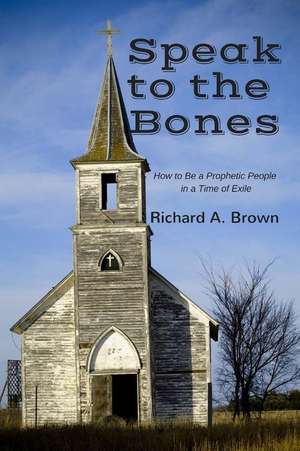Speak to the Bones: How to Be a Prophetic People in a Time of Exile
Autor Richard A. Brownen Limba Engleză Paperback – 14 feb 2017
Preț: 57.70 lei
Nou
Puncte Express: 87
Preț estimativ în valută:
11.04€ • 12.00$ • 9.28£
11.04€ • 12.00$ • 9.28£
Carte disponibilă
Livrare economică 31 martie-14 aprilie
Preluare comenzi: 021 569.72.76
Specificații
ISBN-13: 9780984481521
ISBN-10: 0984481524
Pagini: 162
Dimensiuni: 152 x 229 x 9 mm
Greutate: 0.23 kg
Editura: ISAAC'S PR
ISBN-10: 0984481524
Pagini: 162
Dimensiuni: 152 x 229 x 9 mm
Greutate: 0.23 kg
Editura: ISAAC'S PR
Notă biografică
Richard Brown is editor and publisher of Isaac's Press, dedicated to producing quality religious curriculum for progressive Christians. He studied in seminary with one of the early proponents of the New Perspective on Paul, Lloyd Gaston, at Vancouver School of Theology. He holds a master's degree in religion from Park University Graduate School of Religion and a bachelor's degree in journalism from the University of Missouri at Columbia. His book, WHAT WAS PAUL THINKING?, was published by Isaac's Press in 2010. A former newspaper reporter, he retired after 23 years as a book and magazine editor for Herald Publishing House and Community of Christ International Headquarters. Rich authored more than a half dozen books published under the Herald House imprint and was a frequent contributor to numerous denominational publications and other journals. At various times he edited the devotional guide, DAILY BREAD, the testimony magazine, RESTORATION WITNESS, and edited and founded the scholarly journal THEOLOGY and the spirituality journal FACE TO FACE. At the time of his early retirement he was managing editor of the HERALD, the denomination's flagship monthly magazine with a circulation of more than 17,000.
